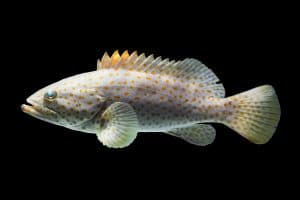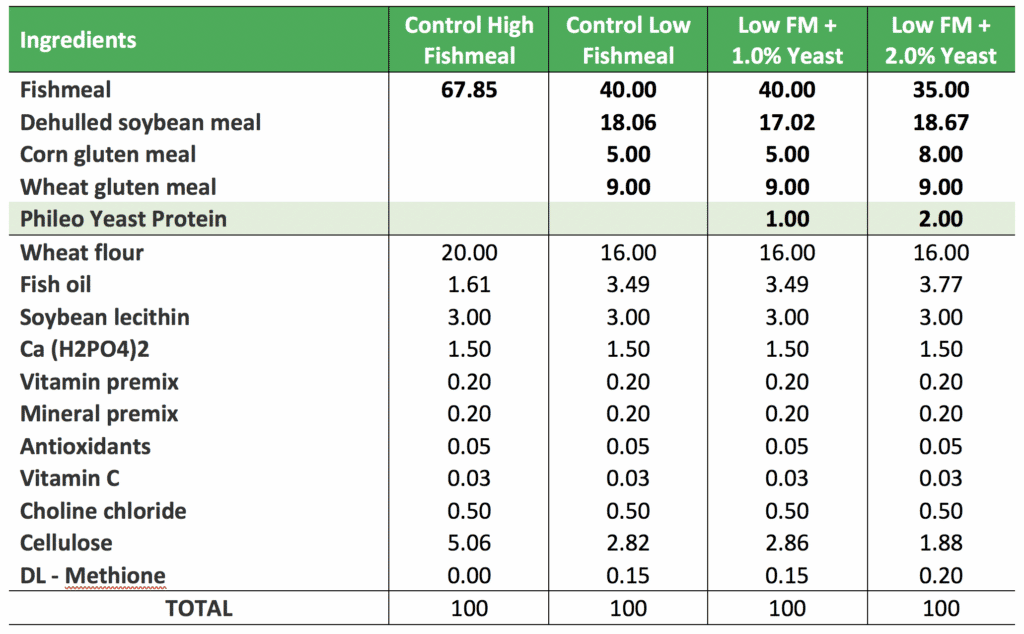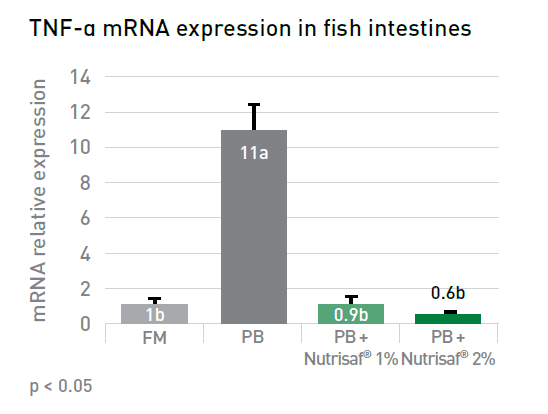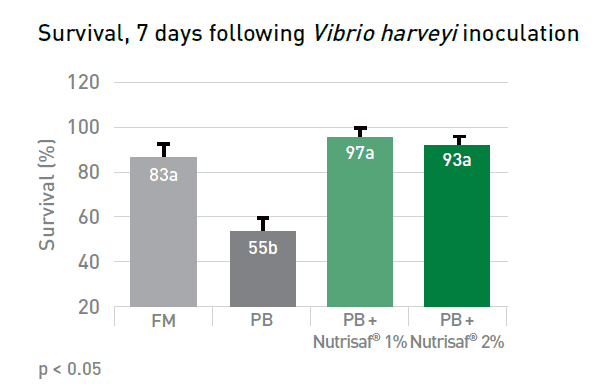18 Nov Functional yeast protein improves fish health in reduced fishmeal diets
Otavio Castro, MS – Global Aquaculture Manager at Phileo by Lesaffre

Functional yeast proteins supplementation in reduced fishmeal diets for orange-spotted grouper (Epinephelus coioides) reduces gut inflammation, improves villi structure and increase survival after Vibrio harveyi disease challenge.
Fishmeal reduced diets for aquaculture have been successfully validated in the past years for different species such as shrimp, salmon, trout, etc. Formulating balanced feeds considering essential nutrients digestibility (amino acids, fatty acids, etc.) micronutrients availability and palatability features, enables the better utilization and valorization of alternative/nontraditional protein sources, combining them with complementary ingredients and strategic feed additives (amino acids, enzymes, organic minerals, etc.).
However, most of the nutritional trials are carried out under controlled environment and may cover up some potential health risks inherent to a long-term exposure to antinutritional factors. When considering farming conditions, where additional environmental stress factors and pathogenic organisms’ will be present, an especial attention is needed to mitigate negative impacts in production, that can vary from impaired feed efficiency and growth, to an increased disease susceptibility and mortality rates.
A recently published study in the Aquaculture journal (https://linkinghub.elsevier.com/retrieve/pii/S0044848620311935) has demonstrated how yeast functional proteins can be used as a sustainable tool to improve gut health indicators and increase disease resistance of the marine fish orange-spotted grouper (Epinephelus coioides), challenged with the gram negative bacteria Vibrio harveyi.
The study aimed to evaluate the effects of Phileo by Lesaffre yeast protein in the zootechnical performance, gut health parameters and disease resistance of juvenile grouper (average body weight of 10.00 ± 0.05 g) fed on reduced fishmeal diets replaced in different strategies using plant-based proteins. A 56-day performance trial (29 ± 1°C) was carried out followed by an infection challenge with Vibrio harveyi (1.6×108 cfu; pectoral fin injection). Best results were achieved with 1 and 2% of inclusion in the diet (table 1).
Table 1. Formulation and proximate composition (g/100g, dry matter) of the experimental diets. Adapted from Yang et al 2020.

No differences were observed in the zootechnical performance after a 56-day period comparing supplemented groups to the high fishmeal control. Supplementation of yeast functional protein decreased significantly the expression levels of inflammation-related genes (TLR22, INF-γ, and TNF-α) in the gut (figure 1). These results can indicate an effect of the antinutritional factors from the plant ingredients playing a role in the gut inflammation induction in the negative control (PB).

Significantly higher villi length, especially in the midgut and hindgut were observed in the group fed with 2% of yeast, and a trend to increase length on the group supplemented with 1% compared to the low fishmeal control (Table 2). Inflammation process in the mucosa can generate disturbances and negative changes in the intestine morphology, affecting the villi structure.

Including 1 and 2% of Phileo yeast protein significantly improved fish survival after Vibrio harveyi infection comparing to the control group (figure 2). Survival of supplemented group were also superior numerically compared to the high fishmeal control. The better disease resistance is a result of the reduced inflammation process in the gut, stronger gut barrier, improved absorption of essential nutrients, and improved immune responses associated with the functional compounds of the yeast cell wall (B-glucans, mannans, chitin).

The study validated Phileo yeast protein as a functional and cost-effective solution to improve performance of reduced fish meal/increased plant-proteins in marine fish feeds. Yeast proteins can be a sustainable tool to mitigate performance losses risks in farming operations and to be incorporated in antibiotic reduction strategies in the aquaculture industry.
Source:
YANG X., HE Y., CHI S., TAN B., LIN S., DONG X., YANG Q., LIU H., ZHANG S. 2020. Supplementation with Saccharomyces cerevisiae hydrolysate in a complex plant protein, low-fishmeal diet improves intestinal morphology, immune function and Vibrio harveyi disease resistance in Epinephelus coioides. Aquaculture 529 (2020) 735655. https://linkinghub.elsevier.com/retrieve/pii/S0044848620311935







Sorry, the comment form is closed at this time.